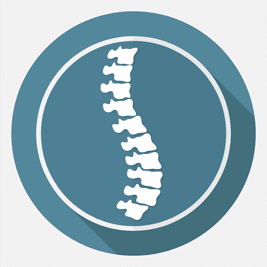The effects of SCI depend on the type of injury and the level of injury. SCI can be divided into two types of injury-complete and incomplete. A complete injury means there is no function below the level of the injury, no sensation and no voluntary movement. Both sides of the body are equally affected. An incomplete injury means that there is some functioning below the primary level of injury. A person with an incomplete injury may be able to move one limb more than another, may be able to feel parts of the body that cannot be moved, or may have more functioning on one side of the body than the other. With the advances in acute treatment of SCI, incomplete injuries are becoming more common.
The level of injury is very helpful in predicting what parts of the body might be affected by paralysis and loss of function. In incomplete injuries, there will be some variation in the prognoses. Cervical (neck) injuries usually result in tetraplegia. Injuries above the C-4 level may require a ventilator for the person to breathe. C-5 injuries often result in shoulder and biceps control, but no control at the wrist or hand. Individuals with C-7 and T-1 injuries can straighten their arms, but still may have dexterity problems with the hand and fingers.
Injuries at the thoracic level and below result in paraplegia, with the hands not affected. At T1 to T-8, there is most often control of the hands, but poor trunk control, as the result of lack of abdominal muscle control. Lower thoracic injuries (T-9 through T-12) allow for good trunk control and good abdominal muscle control. Sitting balance is very good. Lumbar and sacral injuries, however, yield decreasing control of the hip flexors and legs.
Besides a loss of sensation or motor functioning, individuals with SCI also experience other changes. For example, they may experience dysfunction of the bowel and bladder. Sexual function is frequently affected; men with SCI may have their fertility affected, while fertility in women is generally not affected. Very high injuries (C-1, 2), can result in a loss of many involuntary functions, including the ability to breathe, necessitating breathing aids such as mechanical ventilators or diaphragmatic pacemakers. Other effects of SCI may include low blood pressure, inability to regulate blood pressure effectively, reduced control of body temperature, inability to sweat below the level of injury, and chronic pain.

